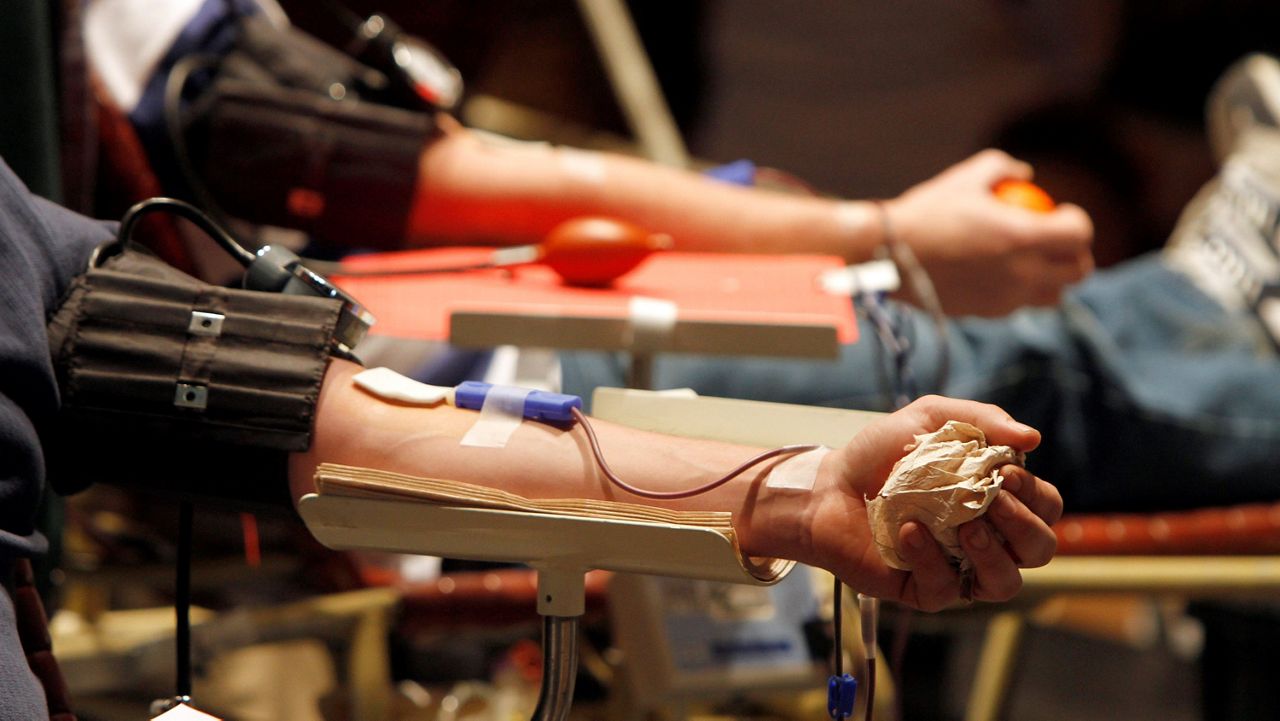Blood
Gay men can donate blood for the first time in years
The American Red Cross has been struggling with a blood shortage for years. The organization declared a national blood shortage this past fall after its critically low blood supply level dropped nearly 25% in August.
Steve Farrington is a teacher, an author, and a previous blood donor who has a passion for giving back to the community. He has wanted to return to the American Red Cross to donate blood for years.
“It was very frustrating not being able to give blood,” he said.
Decades ago, he was a blood donor, but that was before he came out as a gay man.
For years, the U.S. Food and Drug Administration required men who have sex with men abstain from intercourse for an amount of time prior to giving blood.
“Because it was based on sexual orientation, they were asked about sexual partners. And if you had a sexual partner in the last three months, you were automatically deferred. Under this new guidance, that is no longer necessarily the case based on your health intake history,” Meg Rossman, from the American Red Cross, said.
The FDA’s new guidance, which went into effect this past August, loosens restrictions so that gay and bisexual men in monogamous relationships can donate in the U.S. without abstaining. It’s a change Farrington says he wishes happened sooner.
“One big moment also for the gay community, years ago with the shootings at the Pulse nightclub in 2016, there were a lot of gay men who wanted to give blood after that because they wanted to support their community, and people who had been really affected by that and they were not able to give blood,” Farrington explained.
However, the decision came down to the FDA, and was a requirement for the American Red Cross to follow. The organization says the LGBTQ+ community has always been a big part of why they serve.
“The LGBTQ+ community has long been an important part of our humanitarian mission at the Red Cross, and we want to make sure that people feel included and that this is an inclusive process for everyone.” Rossman said.
Dr. Bill Valenti, who has been advocating throughout the HIV epidemic for equal rights, says the opportunity to donate blood is a part of human nature.
“This is good progress,” he said. “We thought that people were excluded [unnecessarily] from donating blood. And now what we have is science and asking the right questions to the right people [to] increase the blood supply. People can donate blood. It’s a good thing and a good place to be.”
Farmington is just excited to be able to return to what he enjoys doing for the community. After the requirement changed, he was first in line to start donating again.
“I’m really excited to go and give blood. Maybe a little bit nervous, just because no one’s a huge fan of needles, right?” Farmington said.
He adds it’s a small cost to give the ultimate gift, “I feel great and excited and ready.”
Farmington’s blood type is O+, which makes him a great donor candidate.
“This blood donation could help up to four people so, you know, they say the life you save could be your own, right? You never know. My dad, for example, had to have an operation last month,” he explained. “I’m happy to do something that’s useful for society. Happy to help people. Happy to also kind of prove that gay people can do so. They can do the same as anybody else. I intend to be a high flier with this.”
The American Red Cross has updated its donor eligibility requirements on its website.

